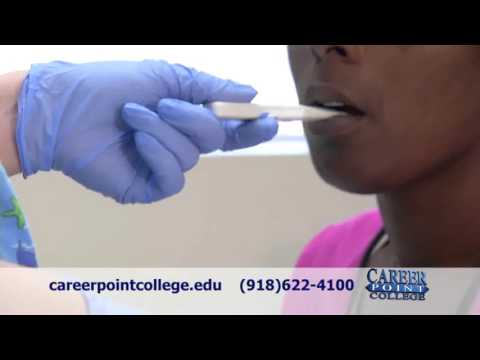Essential Functions of a Medical Assistant
Contents [show]
A medical assistant is a multi-skilled professional who is trained to perform both administrative and clinical duties in a medical office.
Checkout this video:
Duties of a medical assistant
Medical assistants are some of the most important members of a healthcare team. They provide critical support to doctors and nurses, and they perform a variety of duties that are essential to the efficient operation of a medical practice.
Some of the most important duties of a medical assistant include gathering patient information, scheduling appointments, taking medical histories, performing basic lab tests, and assisting with minor surgical procedures. In addition to these direct patient care duties, Medical Assistants also perform administrative tasks such as billing and coding, ordering supplies, and handling insurance paperwork.
The role of medical assistant is a challenging one that requires excellent communication skills, attention to detail, and the ability to juggle multiple tasks at once. However, it is also a very rewarding career choice that offers opportunities for personal growth and professional development. If you are considering a career in healthcare, becoming a medical assistant is a great place to start.
Qualifications for a medical assistant
Education and Certification
Most medical assistants have postsecondary education such as a certificate. Some programs take as little as 3 months to finish, and other programs may last up to 2 years. Many community colleges, technical schools, vocational schools, and hospitals offer medical assistant programs.
Employers generally prefer to hire certified medical assistants. Certification for medical assistants demonstrates that they have the knowledge and skills needed to perform their job. The Certified Medical Assistant (CMA) credential is offered by the American Association of Medical Assistants (AAMA). To earn the CMA, medical assistants must graduate from an accredited program and pass a national certification exam administered by the Certifying Board of the AAMA.
Some states regulate medical assistants. For example, Florida, Hawaii, Nevada, and Nebraska require medical assistants to be registered or licensed in order to perform certain tasks, such as taking x-rays or administering medications. Most states do not have specific regulations for medical assistants. Check with your state’s Board of Medicine or Board of Nursing for more information about requirements in your state.
What medical assistants do
Medical assistants play an important role in the healthcare industry. They are responsible for a variety of tasks, including greeting patients, scheduling appointments, taking medical histories and providing support to doctors and nurses.
While their job duties may vary depending on the size and type of healthcare facility they work in, there are some essential functions that all medical assistants perform. These include:
-Answering patient questions
-Taking vital signs
-Preparing patients for examination
-Assisting with procedures
-Collecting and processing laboratory specimens
-Performing administrative tasks
-Maintaining medical records
If you’re thinking of becoming a medical assistant, it’s important to have a clear understanding of the duties and responsibilities you will be expected to perform. This will help you decide if this is the right career for you.
The medical assistant job description
The medical assistant job description is essential for those considering this exciting career. Medical assistants are important members of the healthcare team, providing support to doctors and other medical professionals in a variety of settings.
While the duties of a medical assistant can vary depending on the specific job, there are some essential functions that are common to most positions. Medical assistants typically perform administrative and clinical tasks, such as taking patient histories and recording vital signs. They may also schedule appointments and help with billing and insurance paperwork. In some cases, medical assistants may also be responsible for basic laboratory tasks, such as drawing blood or performing urine tests.
No matter what specific duties are included in a medical assistant job description, all positions require a strong commitment to providing quality patient care. If you are interested in a career as a medical assistant, be sure to research various job descriptions to find the position that best suits your skills and interests.
Medical assistant responsibilities
The duties of a medical assistant vary from office to office, but there are certain tasks that are essential in any setting.
First and foremost, a medical assistant is responsible for patient care. This includes tasks such as taking vital signs, recording medical histories, and administering medications.
A medical assistant also plays an important role in assisting the physician with diagnostic procedures and treatment plans. He or she may prepare patients for examination, assist with diagnostic tests, and help to implement the physician’s treatment plan.
In addition to direct patient care, a medical assistant is responsible for a variety of administrative tasks. These may include scheduling appointments, maintaining medical records billing patients, and ordering supplies.
The specific duties of a medical assistant will vary depending on the size and type of medical office in which he or she works. However, there are certain tasks that are essential in any setting.
What does a medical assistant do?
A medical assistant is a person who has been trained to perform a variety of tasks in a doctor’s office or clinic. These tasks include taking medical histories, measuring vital signs, giving injections, drawing blood, and scheduling appointments. Many medical assistants also perform clerical duties such as answering phones, filing patient records, and billing insurance companies. Some medical assistants take on additional responsibilities such as ordering supplies and handling billing and insurance claims.
The medical assistant role
Medical assistants are one of the most important members of a healthcare team. They are responsible for performing a variety of tasks, from administrative duties to clinical tasks, in order to keep the office running smoothly. Here are some of the essential functions of a medical assistant:
First and foremost, medical assistants are responsible for administrative duties. They answer phones, schedule appointments, file insurance paperwork, and perform other vital office tasks. Without medical assistants, doctor’s offices would be in chaos!
In addition to administrative duties, medical assistants also have a number of clinical responsibilities. They may take patient histories and vital signs, prepare patients for examination, assist with minor procedures, give injections, and more. Basically, if it needs to be done in a doctor’s office, a medical assistant can probably do it!
Medical assistants must have excellent communication skills. They need to be able to interact with patients in a professional and compassionate manner. They also need to be able to communicate effectively with other members of the healthcare team.
Finally, medical assistants must be detail-oriented and organized. With so many important tasks to keep track of, they need to be able to stay organized and pay attention to details. This is essential in order to provide quality patient care.
What is a medical assistant?
A medical assistant is a member of the healthcare team who performs administrative and clinical tasks in a medical office, clinic, or hospital. They work closely with physicians, nurses, and other medical staff to provide care to patients.
Medical assistants are usually responsible for greeting patients, scheduling appointments, taking patient medical histories and vital signs, preparing patients for examinations, assisting with procedures, and handling laboratory specimens. They also may perform basic laboratory tests, give injections, take X-rays, remove sutures, and change dressings. In some states, they may also have limited prescribing authority.
Medical assistants must be able to perform their duties with kindness, compassion, and patience. They must be able to work well under pressure and handle a variety of tasks simultaneously. They must be detail-oriented and have good organizational skills. Most medical assistants have at least a high school diploma or equivalent; however, some jobs may require postsecondary education or certification.
Medical assistant duties
The duties of a medical assistant are wide-ranging and cover both administrative and clinical tasks. In small practices, medical assistants may be responsible for a variety of functions, while in larger practices they may specialize in one area. However, all medical assistants perform duties that are important to the successful operation of a medical office.
Some of the administrative duties performed by medical assistants include scheduling appointments, greeting patients, updating and filing patient Medical records handling correspondence, and scheduling laboratory tests and diagnostic procedures. In addition, medical assistants may be responsible for billing and coding information for insurance purposes.
Medical assistants also perform a variety of clinical tasks. These tasks may include taking and recording vital signs such as blood pressure and weight, preparing patients for examination, assisting the physician during the examination, performing basic laboratory tests, providing instruction to patients about medication and special diets, making referrals to other health care professionals, and arranging for hospital admissions and follow-up care.
Medical assistant job description
Medical assistants perform a variety of administrative and clinical tasks to support the work of physicians and other health professionals. Their duties vary with the location, specialty, and size of the practice.
Most medical assistants have postsecondary education such as a certificate. Others enter the occupation with a high school diploma and receive on-the-job training. Medical assistants must complete continuing education courses periodically to keep their skills up to date.
The following are examples of typical duties performed by medical assistants:
Performing basic laboratory tests
Taking and recording patients’ vital signs, such as blood pressure and temperature
Answering patients’ questions and providing instructions
Preparing patients for examination
Assisting physicians during examinations
Schedule appointments







